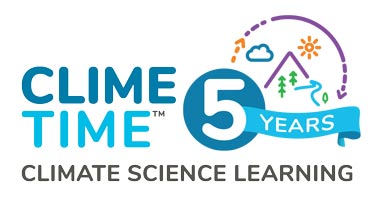Teaching the critical link
between food waste and climate change
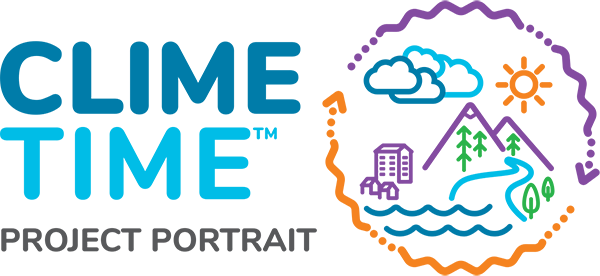
Overview
Since 2018, the Pacific Education Institute (PEI) has facilitated seven Solutions Oriented Learning Storylines (SOLS): Food Waste workshops statewide, serving 126 K-12 teachers from 31 school districts and providing 936 clock hours of professional learning. PEI’s workshops give teachers time to learn content, explore activities to use with students and to meet the community organizations that are involved in the issue.
At the workshops, educators learn about the tremendous resources that go into food production starting with seeds, water, energy and soil, considering the collection and transportation of the food and calculating the greenhouse emissions from the food that is wasted. Solutions to food waste is the third largest way to impact climate change mitigation and it is an area of life over which everyone has control. Teachers engage in ways to work with their students to explore how individuals, classrooms, and schools can be part of the climate solution. The storylines are a series of integrated lessons and materials that are vertically aligned to fit to specific grade levels in elementary and the middle and high school grade band standards – helping teachers meet Next Generation Science Standards. They are also designed to be locally adapted to be place-based, community and geographically relevant.
What We Did
At SOLS Food Waste workshops, teachers apply math and science to understand the issue. For example, in one activity they measure how much energy, water and land goes into one pound of milk in a school lunch and how much atmospheric greenhouse gas (carbon dioxide and methane) will be produced if it is thrown out and sent to a landfill.
Teachers Sarah Franko and Sharon Schneider had already been exploring the theme of waste in their third grade classrooms when they decided to conduct an impromptu snack audit of their students. Both teachers had attended PEI’s SOLS: Food Waste workshop in Spokane. To learn more about what food they were throwing away and why, the Fort Colville Elementary School teachers conducted an exercise to informally collect data.
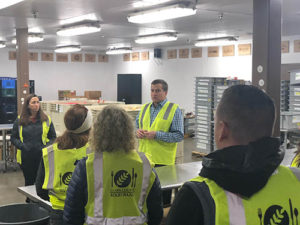 Students drew pictures of their favorite meals, using colors and labels. Next, they conducted an exercise titled ‘Life of the Strawberry’, then drew another picture of what their plate looks like after dinner, including any food and drink that were remaining. Finally, they wrote journal entries about what they had learned through the waste audit process.
Students drew pictures of their favorite meals, using colors and labels. Next, they conducted an exercise titled ‘Life of the Strawberry’, then drew another picture of what their plate looks like after dinner, including any food and drink that were remaining. Finally, they wrote journal entries about what they had learned through the waste audit process.
As a result of their experience, the students expressed interest in having a classroom worm bin, which the Washington State University extension office agreed to build. Overall, says Franko, the hands-on nature of the storyline helped the third graders become advocates for food waste reduction while improving their critical questioning and problem-solving skills.
Another central aspect of the workshop is incorporating Indigenous perspectives about food and waste. Braided Education Consulting and Cinnamon Bear lead this work for PEI. Whenever possible, we invite a local tribal elder or leader who can speak to the way in which traditional values aligned to food can be shared. When that’s not an option, participants view TEDtalks from Indigenous leaders who share their perspectives or spend time learning strategies to make authentic connections with local tribal communities so they can better incorporate the Tribal knowledge and expertise.
Workshops also feature collaborations with community partners. At the March 2020 workshop, those included partners were NEWESD101, the City of Spokane, 2nd Harvest Food Bank, Spokane Public Schools, and ReProduce 81, an organization founded by Josh Hechtman, a 17-year-old high school senior at Lewis and Clark High School in Spokane.
What We Learned
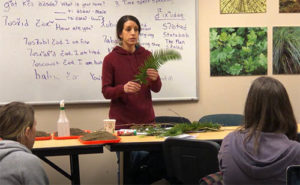 When teachers were surveyed after SOLS: Food Waste workshops, 97% said their climate change knowledge was significantly deepened. Of those who participated, 31 or nearly one-third went on to implement that knowledge with their students, earning implementation stipends. Teachers gained in-depth, community based and locally relevant climate information and support as they implemented what they learned, collected student work, and evaluated and improved their instructional practice. The storylines build equity for students furthest from educational and environmental justice by providing activities to draw out their assets and with learning scaffolds to support them so they can contribute their knowledge and skills to make healthy decisions for their communities. With food waste, all students have meaningful ways they can take steps to mitigate climate change in their own lives, in their school or in their community by implementing solutions.
When teachers were surveyed after SOLS: Food Waste workshops, 97% said their climate change knowledge was significantly deepened. Of those who participated, 31 or nearly one-third went on to implement that knowledge with their students, earning implementation stipends. Teachers gained in-depth, community based and locally relevant climate information and support as they implemented what they learned, collected student work, and evaluated and improved their instructional practice. The storylines build equity for students furthest from educational and environmental justice by providing activities to draw out their assets and with learning scaffolds to support them so they can contribute their knowledge and skills to make healthy decisions for their communities. With food waste, all students have meaningful ways they can take steps to mitigate climate change in their own lives, in their school or in their community by implementing solutions.
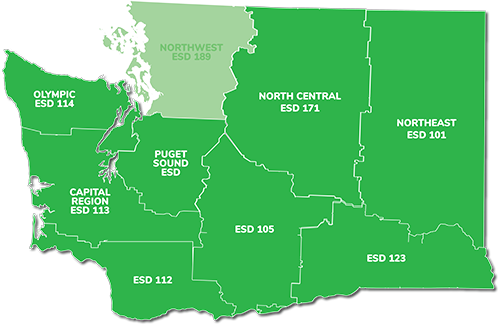
Project Reach
Teachers
Students
STEM Clock Hours
Project Partners
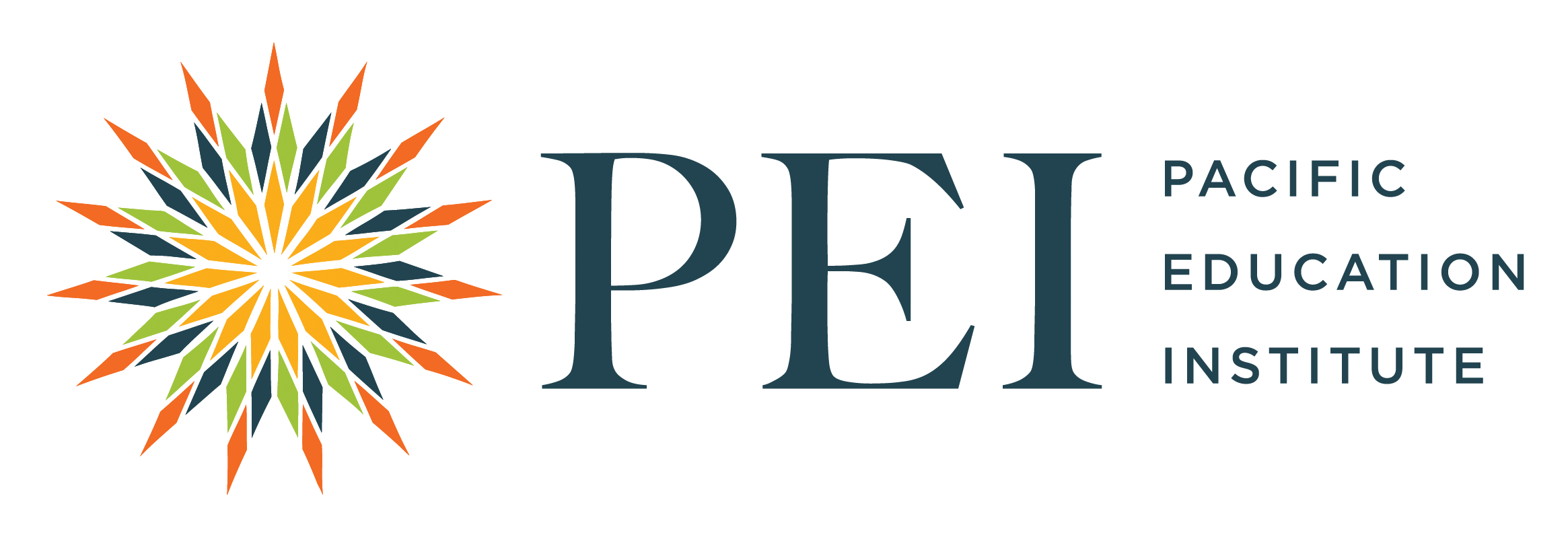
Feedback
I am excited to implement this solution-based learning project about food waste to connect my students to the global issue, as well as to local issues that they can control.
I am excited to teach about the connection between climate change and food waste! This connection was very clear and strong in the educational materials for me to see.
Contact
For more information contact:
Kathryn Kurtz, Executive Director, Pacific Education Institute
kkurtz@pacificeducationinstitute.org
Molly Griffiths, West Sound Field STEM Coordinator, Pacific Education Institute
mgriffiths@pacificeducationinstitute.org
